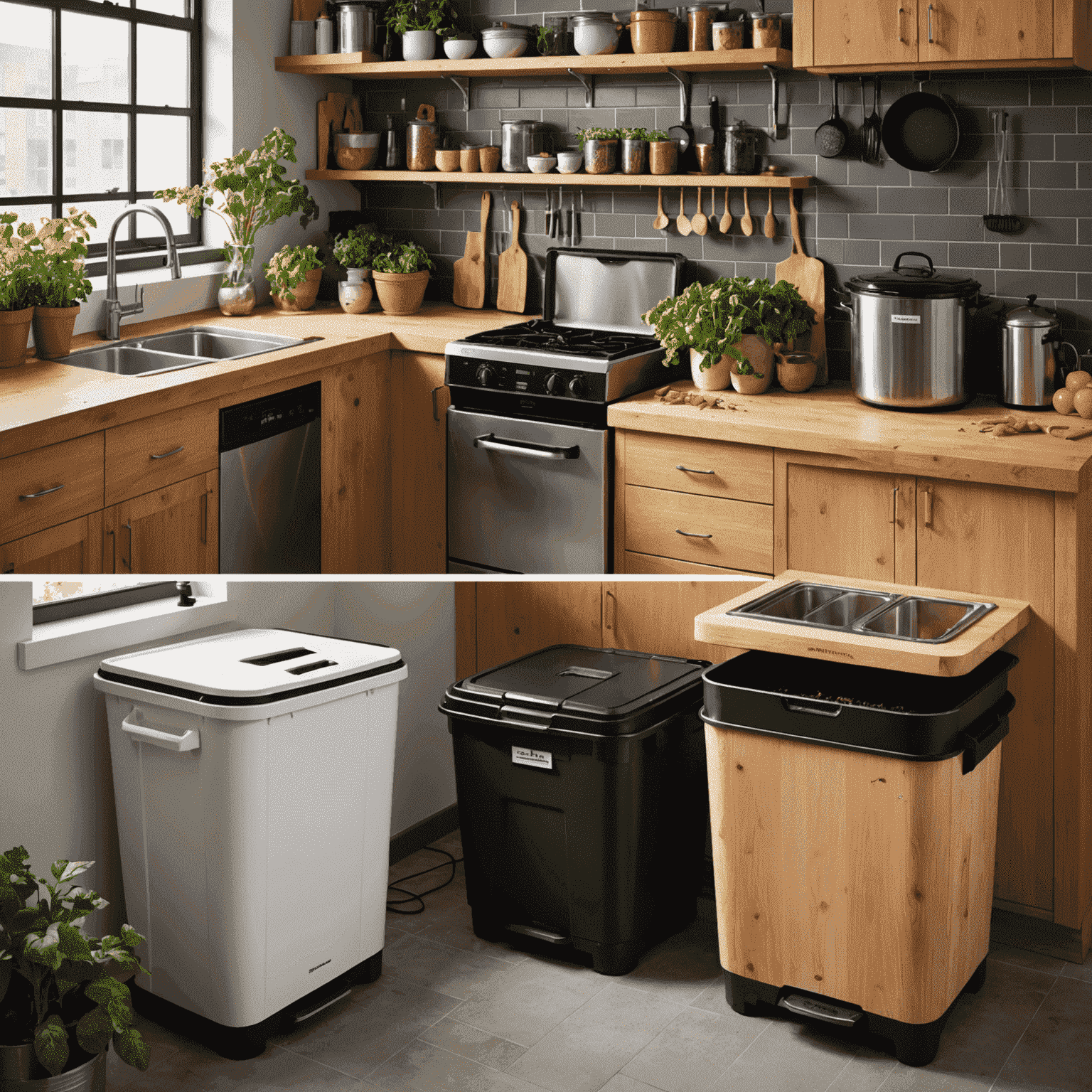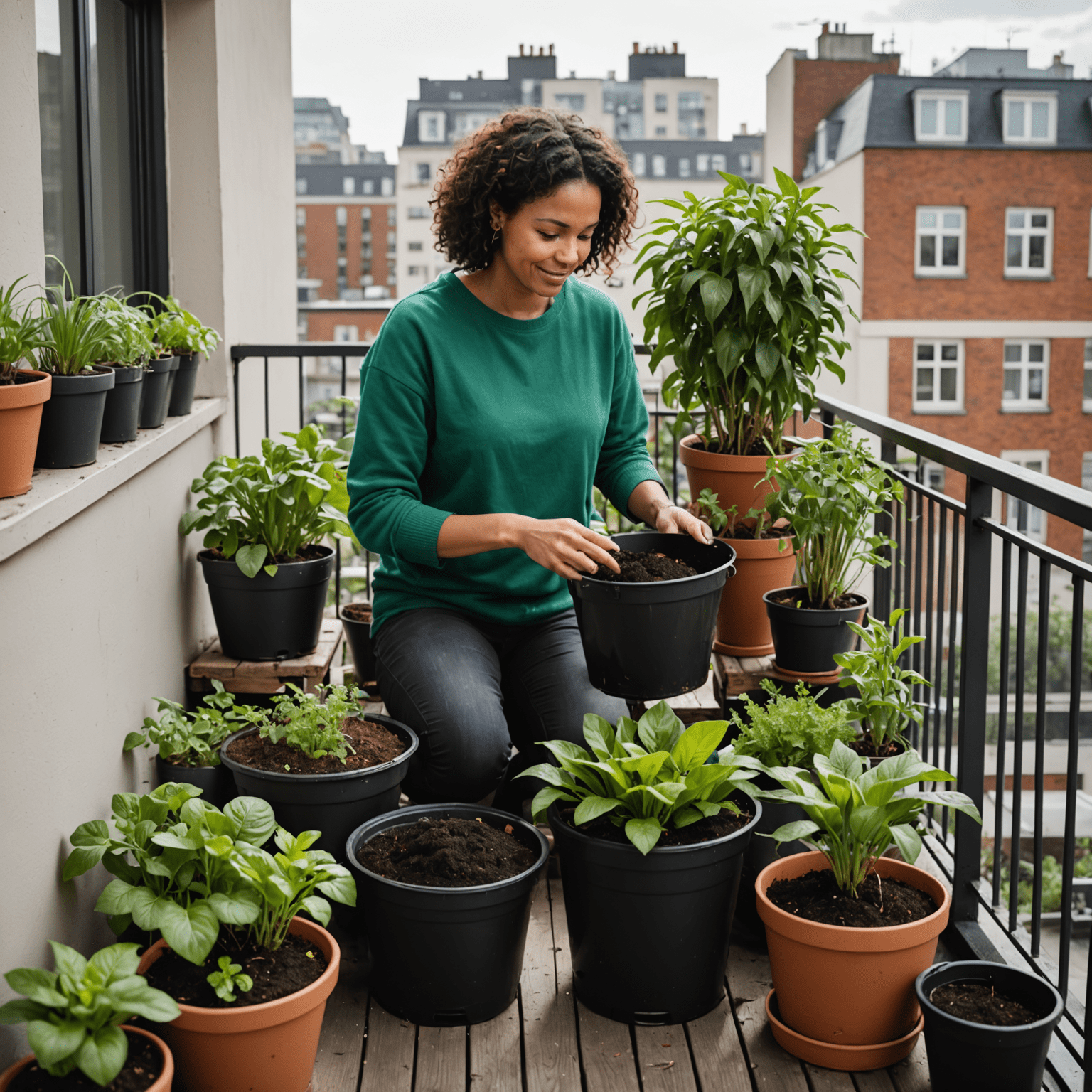Urban Composting: A Beginner's Guide

Living sustainably in the city doesn't mean you have to give up on eco-friendly practices like composting. Even in small apartments, you can reduce food waste and create nutrient-rich soil for your plants. Let's explore how to start composting in urban environments.
Why Urban Composting Matters
Composting is a crucial aspect of sustainable living, even in big cities. It helps reduce dump waste, decreases methane emissions, and creates valuable soil amendments for your urban garden or houseplants. By embracing this eco-conscious lifestyle choice, you're contributing to a greener, more sustainable city.
Choosing Your Composting Method
For apartment dwellers, these compact composting solutions work well:
- Bokashi Composting: An anaerobic process that ferments food scraps, ideal for small spaces.
- Vermicomposting: Using worms to break down organic matter, perfect for under-sink setups.
- Electric Composters: Compact machines that speed up the composting process, suitable for countertops.

Getting Started with Urban Composting
- Select Your Container: Choose a well-sealed container to prevent odors and pests. Many eco-friendly options are made from recycled materials.
- Gather Your Greens and Browns: 'Greens' are nitrogen-rich materials like fruit and vegetable scraps. 'Browns' are carbon-rich items like paper and dry leaves.
- Layer Your Materials: Alternate layers of greens and browns to create a balanced compost mix.
- Maintain Moisture and Aeration: Keep your compost as moist as a wrung-out sponge and turn it regularly for proper aeration.
- Be Patient: Composting takes time. In a few months, you'll have rich, dark compost ready for your plants.
What to Compost in Your Urban Setup
Do Compost:
- Fruit and vegetable scraps
- Coffee grounds and filters
- Tea bags (remove staples)
- Eggshells
- Nutshells
- Shredded paper and cardboard
Don't Compost:
- Meat or fish scraps
- Dairy products
- Oils or fats
- Pet waste
- Diseased plants
- Chemically treated wood products
Troubleshooting Common Issues
Even in small-scale urban composting, you might encounter some challenges:
- Odor: If your compost smells, add more browns and ensure proper aeration.
- Pests: Keep your bin sealed and avoid adding meat or dairy to prevent attracting pests.
- Slow Decomposition: Chop materials into smaller pieces and ensure a good green-to-brown ratio.
Using Your Urban Compost
Once your compost is ready, use it to enrich the soil of your houseplants, balcony garden, or community garden plot. You're now part of the circular economy, turning waste into a valuable resource for growing new plants in your urban environment.

By embracing urban composting, you're taking a significant step towards a more sustainable city living. Not only are you reducing waste, but you're also creating a valuable resource for urban greenery. Remember, every small action contributes to a larger impact on our environment. Happy composting!